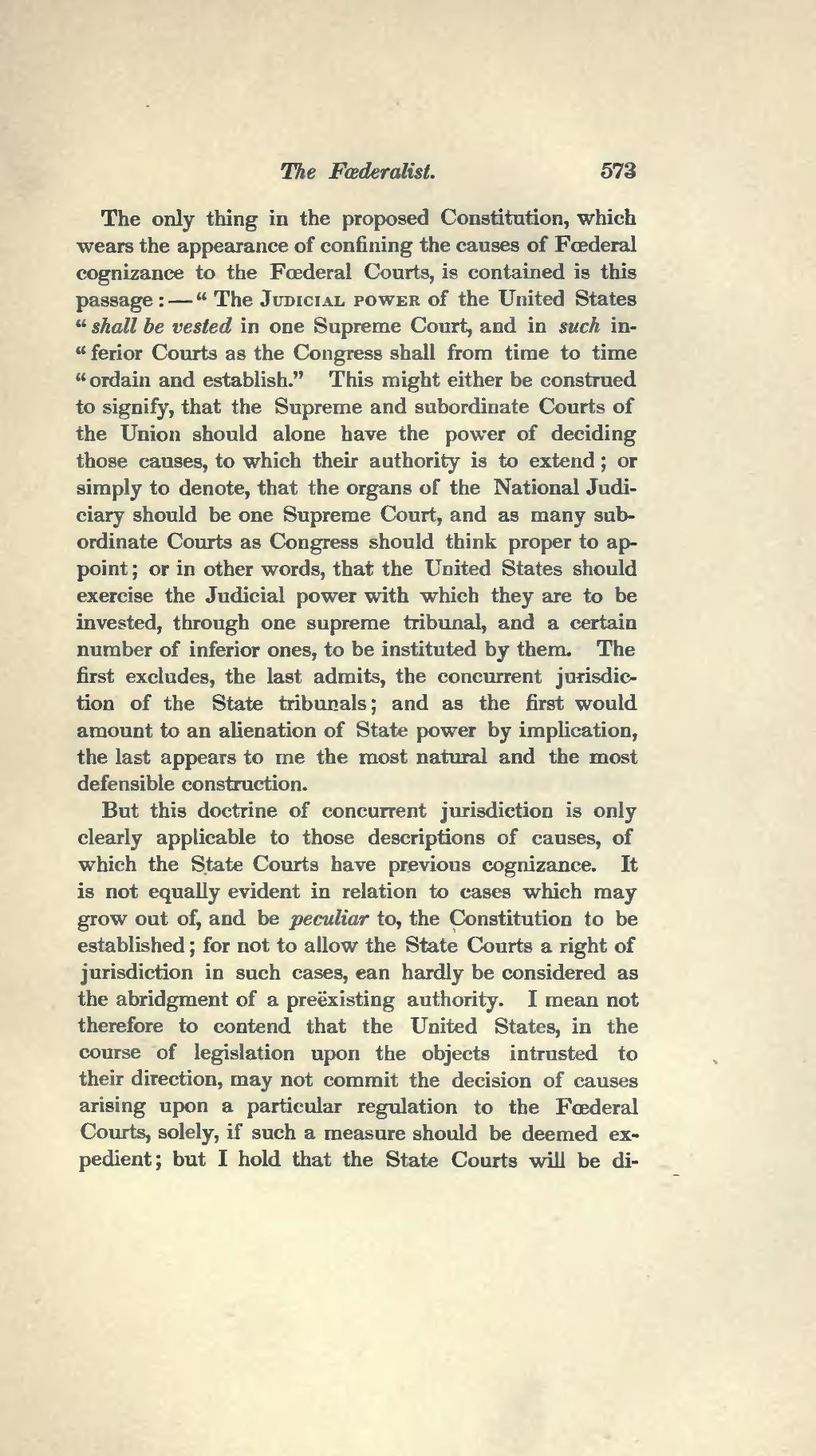The only thing in the proposed Constitution, which wears the appearance of confining the causes of Fœderal cognizance to the Fœderal Courts, is contained in this passage:—"The Judicial power of the United States shall be vested in one Supreme Court, and in such inferior Courts as the Congress shall from time to time ordain and establish." This might either be construed to signify, that the Supreme and subordinate Courts of the Union should alone have the power of deciding those causes, to which their authority is to extend; or simply to denote, that the organs of the National Judiciary should be one Supreme Court, and as many subordinate Courts as Congress should think proper to appoint; or in other words, that the United States should exercise the Judicial power with which they are to be invested, through one supreme tribunal, and a certain number of inferior ones, to be instituted by them. The first excludes, the last admits, the concurrent jurisdiction of the State tribunals; and as the first would amount to an alienation of State power by implication, the last appears to me the most natural and the most defensible construction.
But this doctrine of concurrent jurisdiction is only clearly applicable to those descriptions of causes, of which the State Courts have previous cognizance. It is not equally evident in relation to cases which may grow out of, and be peculiar to, the Constitution to be established; for not to allow the State Courts a right of jurisdiction in such cases, can hardly be considered as the abridgment of a preëxisting authority. I mean not therefore to contend that the United States, in the course of legislation upon the objects intrusted to their direction, may not commit the decision of causes arising upon a particular regulation to the Fœderal Courts, solely, if such a measure should be deemed expedient; but I hold that the State Courts will be di-

